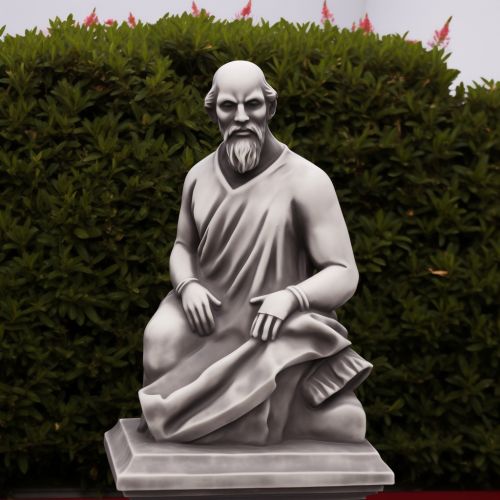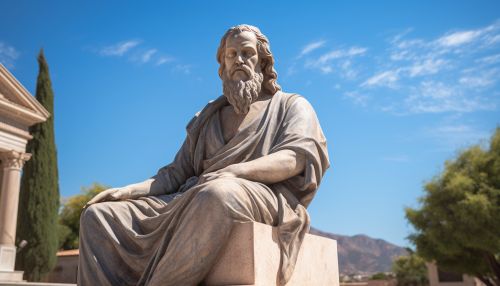Socratic method
Introduction
The Socratic method, also known as method of Elenchus, elenctic method, or Socratic debate, is a form of cooperative argumentative dialogue between individuals, based on asking and answering questions to stimulate critical thinking and to draw out ideas and underlying presuppositions. It is a dialectical method, involving a discussion in which the defense of one point of view is questioned; one participant may lead another to contradict themselves in some way, thus strengthening the inquirer's own point.
History
The Socratic method is named after the classical Greek philosopher Socrates, who developed it to elicit truth in the face of ignorance. Socrates utilized an educational method that focused on discovering answers by asking questions from his students. According to Plato, one of his students, Socrates believed that "the surest way to attain reliable knowledge was through the practice of disciplined conversation...he called this method 'dialectic'".


Methodology
The Socratic method uses questions to examine the values, principles, and beliefs of students. Through the use of probing questions, an individual is led to see that his own ideas are not sufficient, and that he must use critical thinking to reach a more complete understanding of the truth. The Socratic method is a negative method of hypothesis elimination, in that better hypotheses are found by steadily identifying and eliminating those that lead to contradictions.
Application
The Socratic method is widely used in contemporary legal education by many law schools in the United States. It is used in classrooms as a guiding principle for teachers. Additionally, psychotherapy has adopted the Socratic method as a form of cognitive rehabilitation therapy.
Criticisms
While the Socratic method is widely respected for its ability to stimulate critical thinking, it has also been criticized. Some argue that it is a manipulative and dishonest form of discourse, where the inquirer hides his views. Others argue that it is a method of indoctrination, rather than a method of education.
